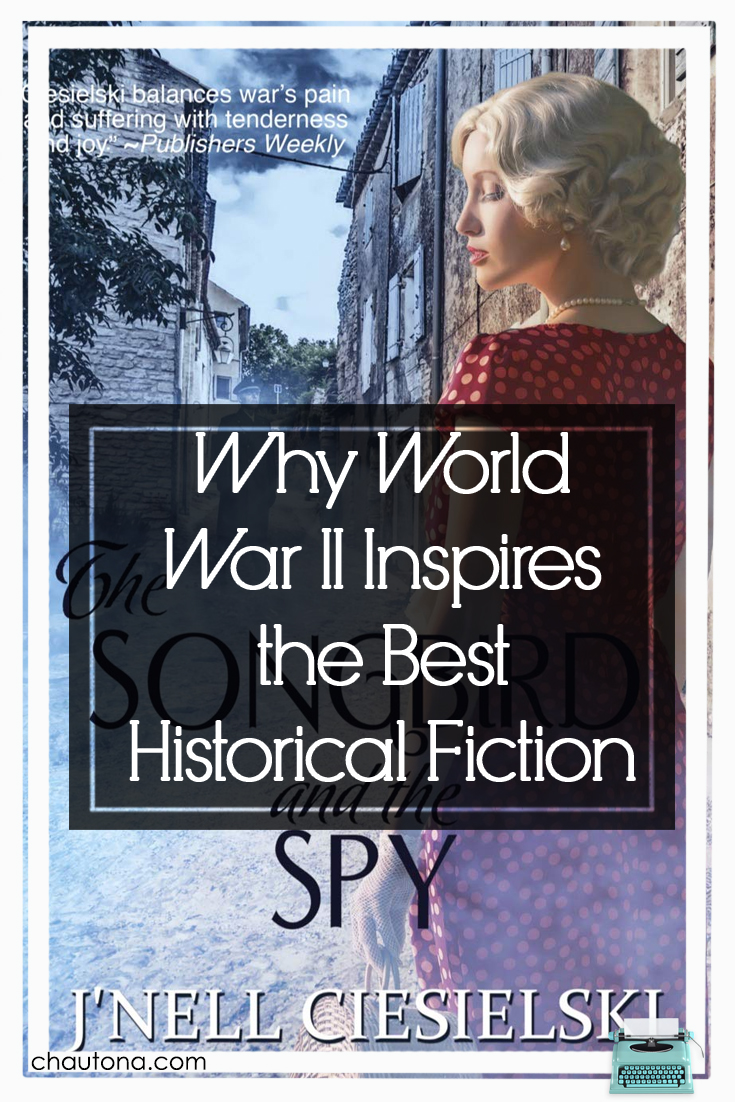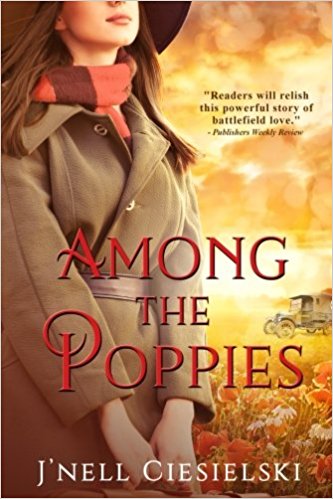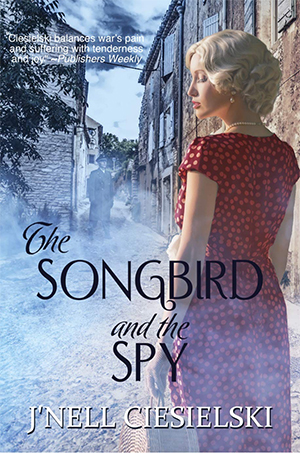If you want to make me cry, don’t give me a movie where someone dies or someone’s greatest dream gets snatched from her (but #1daughter dissolved into hysterics when Angela Landsbury’s dress was taken away from her to be destroyed in Mrs. ‘Arris Goes to Paris). No, let someone do something heroic. So, while my husband gets teary-eyed at the end of It’s a Wonderful Life, it takes something more to make my throat ache and my heart swell.
Heroism.
There’s something about a man who is willing to do anything to protect another that stirs something in the otherwise cold, dead heart of mine. 😉 Movies like Sergeant York, Beau Geste, The Enemy Below, Captain’s Courageous, and my personal favorite, “the Audie Murphy story,” choke me up every time.
That’s one of the things that makes historical fiction so amazing. There are heroes in every era… from today (I think of the men on the planes who rushed the pilots of United Flight 93) all the way back to Noah (sorry, but a guy who obeyed and saved God’s creation for a new start is a hero to me. He had to put up with all those animals for a year. BLECH!)
The Bible is full of heroes—Samson, Esther, and of course the greatest Hero of all time, Jesus the Christ.
I enjoy most historical fiction, and due to finding a new author, that even includes Biblical fiction these days. From ancient to medieval, French, Russian, Scandinavian, to British and American, I really do enjoy most places and eras. Send me to Scotland to fight with Robert the Bruce or to France to help the French Resistance in World Wars I and II.
But there’s something extra special about World War II fiction.

Note: Links may be affiliate links that provide me with a small commission at no extra expense to you.
Why World War 2 Inspires the Best Historical Fiction
Spin a tale of Regency England, and I’m curious. I want to know more about the world in which Jane Austen lived and wrote her stories. Give me westward expansion, and I marvel at the grit of the women who gave up everything for the promise of a freer, better life for their families. Send me into the clouds with airplanes for the first time in the battles of WWI, and my heart soars with them.
Everything changed so much in that war.
However, things also changed in World War II. This time the world was fighting more than an invader wanting control of the world, even. We fought against the slaughter of citizens. By air, sea, land… our soldiers, sailors, and airmen (not to mention the women!) fought to save more than national borders.
They fought against tyranny, prejudice, and evil so horrific that it’s often too much to describe. The mind and heart can’t take it.
In a sense, World War II is a picture of all the wars in history shown in one ugly, ugly “conflict” (what an understatement). In the holocaust, we see the slaughter of innocents after Jesus’ birth. The Great Roman Empire’s constant expansion across Europe and Africa has parallels to Hitler’s expansion. In fact, Hitler said it had been resurrected.
But that’s not the only reason.
America needed the war, frankly. We were still trapped in the clutches of the Great Depression and morale and national pride were at an all time low. Our entrance to the war unified us again. Everything we did was tied to the war. Women wore “victory rolls” in their hair, people planted “victory gardens,” and even soldiers like Audie Murphy bought war bonds with their pay.
Even the movies pushed them. In Anchor’s Aweigh, Frank Sinatra pretends to call a girlfriend but just listens to the time operator announce the time. “At the tone the time will be… buy war bonds!”
The crazy thing is things were still tough.
From not having the money to purchase enough food to food rationing—not much difference. One difference, however, made all the difference. We now had a reason to do without. It wasn’t just an “economic downturn.” Now we did without to resist evil. To help our allies. To prevent the annihilation of an entire ethnic group!
People have suffered through war for all of these things throughout history. Books—fiction and nonfiction alike—have chronicled the stories. This time, as I said, I think we got a glimpse of all the types of wartime atrocities in one six-year battle of good vs. evil.
That’s why I think World War II inspires such phenomenal historical fiction. Because in World War II, we see the valor, honor, heroism, self-sacrifice, and determination to win at any cost that people have shown in every conflict known to human history.
A new World War II novel shows that same fight and struggle.
 When an author has a phenomenal debut novel—one far better than most authors ever write in their lifetimes, one can’t help but be concerned that it might be a “one-hit-wonder.”
When an author has a phenomenal debut novel—one far better than most authors ever write in their lifetimes, one can’t help but be concerned that it might be a “one-hit-wonder.”
I loved J’Nell Ciesielski’s Among the Poppies. (For the review, see HERE). It had everything an excellent novel should. Fabulous writing. Excellent characterization. Sizzling plots that aren’t too sensational or predictable. Not to mention the ability to take the “old” and make it fresh and new again.
So, when an advance copy of The Songbird and the Spy landed in my mailbox, I couldn’t help but be both excited and a little nervous. Would I love it as much? Could she possibly impress me so much two books in a row—the first and only two books she’d had published? Kind of um… unlikely, you know?
One thing made me forge onward.
I had no reason to assume it wouldn’t be awesome, and the synopsis on the back of the book begged me to read.
Unfortunately, I can’t say this book is as good as the first. As much as I want to assure you that it is, it isn’t. It’s better—far better. In fact, I cannot wait to read her next. And the next. Because you see, when someone can write about two different eras with such authenticity and grace, you’ve got an author to watch.
J’nell Ciesielski’s writing has all the beauty of lyrical writing without the devolution into purple prose that so many authors slip into. She wields her descriptive brush with a careful hand. Not once did I get overwhelmed with the description. Not once did I not picture the scene with vivid clarity.
The characters felt like people you could meet, talk to, despise, love.
We’ve seen the French Resistance, under cover Brits, brash Americans—it’s all been done. But Ciesielski takes what we’ve seen and twists it, much like she did in Among the Poppies to give us something new. Claire isn’t French, but she’s there, in France, hiding from the Germans just like anyone. The German officer… isn’t. Nothing is as we expect it to be… and yet it is.
The Germans, we expect to invade. We expect the Brits to fight those Germans. We expect the French to resist their occupation. And yes, we even expect the Americans to make an appearance. And in this book, we have it all and without it being the same old, same old.
Brilliantly written, beautifully orchestrated, The Songbird and the Spy will grip your heart and hold it hostage until the battle for Claire and Michael ends and a victor emerges.
It’s already on my 2019 best reads list.
I seriously doubt anything can bump it off.
Recommended for anyone who loves excellently written historical fiction, romance that feels authentic and not cheesy, and details that never cross into the anachronistic. However, if you enjoy insipid girls with hackneyed plots, I’d stay away.
 About the book
About the book
Title: The Songbird and the Spy
As shells explode over Nazi-occupied France, American music student Claire Baudin is trapped behind enemy lines, struggling to protect her identity. Singing as a barmaid while she plans her escape, a handsome Third Reich captain threatens everything she knows to be true about the enemy.
Nazi Captain Michael Reiner isn’t who he claims to be. A British language expert turned spy, he discovers the truth about Claire, but he knows the importance of a secret. Struggling to resist his attraction to the songbird, he’s determined to complete his assignment, no matter the cost. His cover is threatened when a ruthless female Gestapo officer arrives, hunting Resistance fighters.
The raid forces Michael’s hand: complete the mission or save Claire.
As the war threatens to tear them apart, they must rely on each other for survival. Is there hope—and a future—for an American songbird and a British spy?
Congrats to Marty Moore for winning the free copy!


I think it sounds fascinating. Maybe a little scary. Unlike you, I have a hard time with tension. But I LOVE historical fiction, and I love to read about World War II.
I love the way you write! You’re bolg and reviews are very insightful.
I too love to fondle books, new and old. There’s something about books that draws me in. Maybe it’s because I know each book meant someone gave a small piece of themselves to write it. Maybe it’s all the neat discoveries I will find once I read it. No matter, i love books too.
I think WWII inspires great historical fiction because the true stories are so overwhelming. Examples of hope and despair, of creativity and depravity, of heroism and cowardice already vividly exist, and a skilled author can introduce characters that highlight those emotions in the real events of Pearl Harbor, D-Day, the Blitzkrieg, the bombing of Hiroshima and Nagasaki or the Holocaust. The hard work isn’t in creating those circumstances, it’s in telling a story that lives up to them.
That is beautifully well-put.
World War II is a great setting for fiction partly because it’s outcome would affect the whole world and the people knew it.
It’s still affecting the world today, in some ways, isn’t it?
You write such a well-thought-out explanation – and then ask for my guess?? Ha! Honestly, I’ve never even considered the question. But I definitely think you’re on to a major reason: the heroes, the opportunity for everyone to participate, even from afar. And, as another commenter mentioned, because it happened to OUR grandparents – people we hugged and smelled and ate with, people we could see and touch. Their stories were hard to share, but a book about that era gives a glimpse into the life of someone we know and love.
That’s also a very good point–we aren’t so far removed from it… not just in time but in relationships.
My previous comment was too long and the internet ate it. My 95-year-old grandfather was in WWII as a marine in the Pacific. At 21 years of age, he was a messenger boy who ran messages to the generals and other important people at the front lines. He adopted Psalm 91 and came home safely to his family, my grandmother and my mother as well as his widowed mother and seven younger siblings.
What an amazing story! I can just imagine this as a movie.
I think because of the sheer volume of history associated with it. I have read hundreds of books on it and learn something new every single time. The fortitude of the people that endured and the horror of those who did not. There were so many countries involved and the amount of people involved. It is just unbelievable to me.
That’s true, too. World Wars one and two were the first ones where huge parts of the whole world were fighting at the same time for the same reasons–the second even more than the first.
I think it’s because this happened in the time of our grandparents. The pain, the struggle, the agony of war wasn’t just something we read about in school, it touched the lives of every person, every family, and we still have their memories fresh in our minds. The horror, the romance, the pain, the joy—it was all brought to life through the people who lived it and their memories live on in the stories they told. So it’s easier to create stories that feel real, that have the same emotion.
Maybe. At least, that’s what I think.
Excellent, excellent observation. It’s not quite as disconnected as, say, Agincourt. 😉
Except that for me and my husband, it happened during the time of our PARENTS. *grin* My sister-in-law was even alive during WWII (barely).